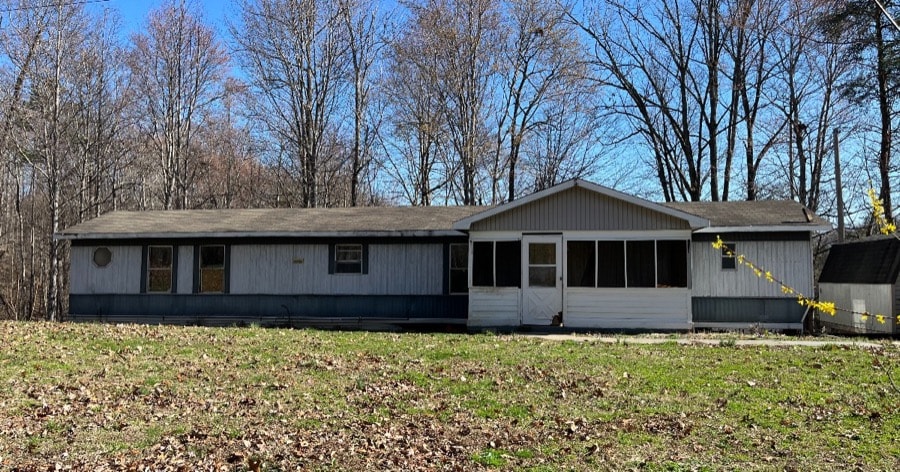What is the Right of First Refusal?
A Right of First Refusal (ROFR) is a contract between two parties, A and B, that simply says that if party A wants to sell or lease out a property, party B (the contract-holder) must be informed and have a first shot at purchasing or leasing it at its market price before A can sell or lease to anyone else.
If B doesn't want it, only then can A consider a third party. Basically, the ROFR is used to prevent a party from selling to another without the contract holder's consent.
A ROFR is usually included in agreements for sales or leases of real estate, but any contract that involves the trade of goods, properties, or services may also include a clause, and mobile home lot rent contracts are no different. It's becoming the norm to do so, with over a third of mobile home lot lease contracts including it.
In that context, the ROFR will stipulate that if you decide to sell your mobile home, you must permit the park (the contract-holder) to have the option of buying first at the same price as you would sell to another party, or at whatever price the third party has offered for the home. If they don't like the price, they're allowed to counter-offer with another price which you may accept, or decline and sell to the third party.
This clause is a method most park owners use to control the residents and housing stock in the park. In this article, you’ll learn what you need to know to protect your interest in Right of First Refusal issues regarding your mobile home property.
Steps to Comply with a Right of First Refusal
First thing to note: You can still sell your mobile home, even if you signed a ROFR, with or without the park owner's consent.
The Right of First Refusal is a non-binding agreement that, in the majority of states, gives the mobile home park the option to match any bids made on the property; however, you are not required to accept it.
If the park management says you can't sell to anybody but the park, that may not be true. You only have to comply with the ROFR by offering the mobile home to the park for a matching offer. In a case like this, the original offer may be increased to outbid the park, which the park can choose to match again. This can go on and on until either party gives up.
To comply with an ROFR clause, there are a few steps you must take:
- Allow the park to choose to match or beat your present offer.
- Wait for the park to either accept or reject your offer. The waiting period is stipulated by the contract but is usually no more than 10 days. The park's decision should be in writing (keep a copy).
- If the park matches the offer, you can decide to either accept or reject it.
- If you reject it, you can keep the home until you get a better offer.
- If you accept the park's offer, you can close the sale with them.
Since ROFRs have a waiting period, it can cause significant delays in making a sale. If you're in a hurry to sell the mobile home, you may have to settle for a much lower price than you would’ve wished.
Can a Mobile Home Park Sue Me Over Right of First Refusal?
Even without an ROFR clause, refusing to comply with the terms of the park management can usually lead to problems. If they’re unhappy with you, some parks can choose to exercise their power as property owners and make being their tenant uncomfortable for you.
The Right of First Refusal is a contested clause because some argue it limits the freedom of tenants to dispose of their mobile homes as they see fit. There was even a bill proposed (it wasn’t passed) in the senate back in 2006 that would've made ROFR clauses non-legally binding. Since then, the courts have been considering whether to discontinue this clause in contracts.
In the meantime, however, the clause continues to be enforceable for the most part. If a tenant fails to comply with the clause, the park may sue for breach of contract and claim damages for any losses incurred as a result of it.
The Right of First Refusal clause stipulates a limit for what the park can claim for damages, though. The park may suffer damages due to devaluation, but the extent and validity of the damages will be decided by the court, and they rarely issue an order to reverse the sale.
What Can You Do to Avoid a Lawsuit from Mobile Park Owners?
When selling a piece of property that has a right of first refusal clause on it, it’s important to act in accordance with the terms set out in the contract.
However, there are loopholes you can exploit to neatly side-step the clause without breaching the terms. Let's explore them.
- Avoid a sale altogether by donating the property. If you choose to donate the property instead of selling it, you won’t have to deal with the clause at all. Donating the mobile home is a common and convenient loophole if you want to make the ROFR moot. This eliminates the need to negotiate or respond to the offer from the park owner and lowers the chances of a dispute over the mobile home. You also stand to gain tax benefits for the donation under section 170 of the internal revenue code.
2. Ensure you get any refusal by the park in writing for evidence in case of any disputes.
3. Make sure all offers from the park are recorded in writing so there's proof the park's offer was outmatched if the case finds itself in court.
4. Obtain legal assistance or advice (if you can't afford to hire a lawyer).
Conclusion
The Right of First Refusal does not stop you from selling your mobile home to other people. It only means that you have to give the park a chance to keep it by informing them first of your intent to sell and letting them make an offer.
As we've mentioned earlier, though, the ROFR clause can interfere with a timely closing of the sale if the park owner refuses your offer outright, refuses to counter-offer, or simply does not respond promptly to your requests or counter-offers.
If you’d like to avoid this, the best solution is simply to donate the mobile home. In doing so, you’ll get tax deduction equivalent to the value of the home while helping someone off the streets. It’s the financial benefits without the hassle of navigating contracts and difficult back and forth with the park.
If you’re interested in donating, an accredited 501(c)(3) nonprofit like Banyan Mobile Home Removal, can help you with that. We will pair your unused mobile home with someone or a family in need of shelter, and we’ll do it at no cost to you.
You can call or email us for more details or if you’d like to begin the process.

Mobile Home Removal All Over the Continental USA
See if Your Home Qualifies Today
Receive a Tax Deduction for Your Donation


